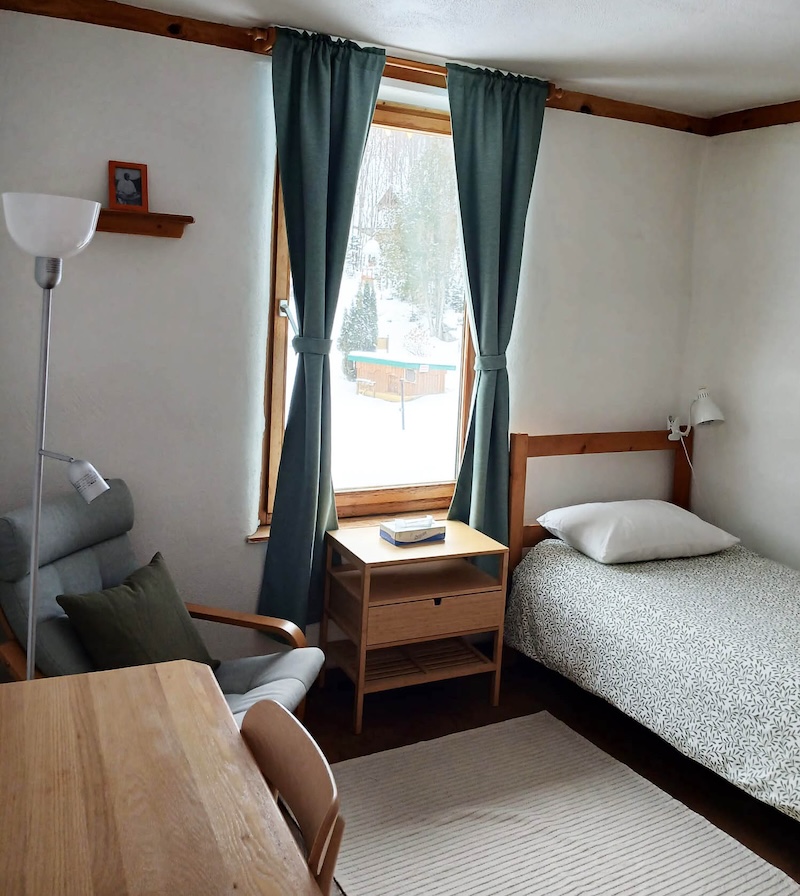Sivananda Yoga Teachers’ Training Course, Canada
Come and develop the skills to teach yoga asana, gain a solid grounding in the classical yoga tradition, and at the same time deepen your spiritual connection to yoga and open yourself to profound inner transformation. In this four-week course, you will establish a firm foundation of discipline that promotes physical, mental, emotional, and spiritual growth and build a strong base from which to teach others naturally and confidently.
The Teacher Training Course (TTC) is a four-week intensive residential course, based on the ancient gurukula system of India where teacher and student live together. You will live in a traditional ashram and closely interact with our experienced and dedicated teachers and staff who themselves are immersed in the yogic lifestyle. Connected to an ancient teaching lineage (guru parampara), passed down from guru to disciple over thousands of years, the curriculum is extensive and covers both theory and practice. Devotional practices, traditional to India, are an integral part of the course.
A vegetarian diet, daily personal practice of yoga and meditation, as well as living in the stunning natural beauty of the Laurentians, away from the hustle and bustle of city life, all promote an atmosphere conducive to profound learning. The Course was designed by Swami Vishnudevananda in 1969 with the vision to not only develop successful yoga professionals but to also spread peace in the world. A sincere desire to learn and an openness to yogic techniques are required. A basic knowledge of yoga postures and philosophy is preferred, but not essential. Graduates of the course receive internationally-recognised certification. Certified by the worldwide Yoga Alliance as a 200-hour Registered Yoga Schools (RYS) TTC. Students enjoy occasional Indian cultural programmes that are offered during evening satsangs. Each week there is one day free of lectures. During this day, students are required to attend morning and evening satsang. In their free time, students can explore the Ashram’s vicinity or join our occasional day trips to places of interest. Attendance at all activities is mandatory. Changes in the program may occur from time to time.
All registrations to the TTC are done online. Students are requested to fill out the online registration form and make their payment at the same time. The Yoga Camp will then send you more logistical information.
For more information, please contact us at:
[email protected] or 819-322-3226
Upcoming Batches
Accommodation

Single Room

Single Room
(Shared Bathroom)

Double

Dorm

Tent
Curriculum
The TTC is a unique, profoundly transformative personal experience based on the ancient gurukula teaching system which integrates the student’s daily life into the yoga training. For four intensive weeks of ashram living, students strengthen their own yoga practice through self-discipline and awareness of the nature of mind, body and spirit while building a firm foundation from which to teach others intuitively and confidently. It is a fantastic opportunity to awaken or deepen your yoga practice, meet old and new friends, and be a part of the growing global yoga community.
Graduates of the course receive internationally recognized certification that is also accepted by the international Yoga Alliance as a 200-hour standard training for Registered Yoga Teachers (RYT).
The goal of this training program is to produce qualified and inspiring yoga teachers who are able to draw on their own practice and personal discipline while imparting the yoga experience to others. The curriculum is based on the five points of yoga which can be understood through the practical application of the four traditional paths of yoga. The intensive daily schedule includes two meditation sessions, two yoga classes, two lectures, and one hour of service to the Ashram community. One day a week is lecture-free.
Refund Policy
If you wish to cancel your registration before the start of the course, the original payment will be refunded less:
- $150 CAD (more than 3 months from course start date)
- $200 CAD (less than 3 months from course start date)
- If you contact us before the course begins in order to transfer to another teacher training course, a $300 CAD administration fee will be charged. Some restrictions may apply, and this change can only be done once.
Once the course starts:
- If you do not show up and do not contact us, no refund will be issued.
- If you decide to leave during the first three days of the course, we will refund your original payment less an administration fee of $450 CAD.
- No refunds will be issued after the 3rd day of the course.



